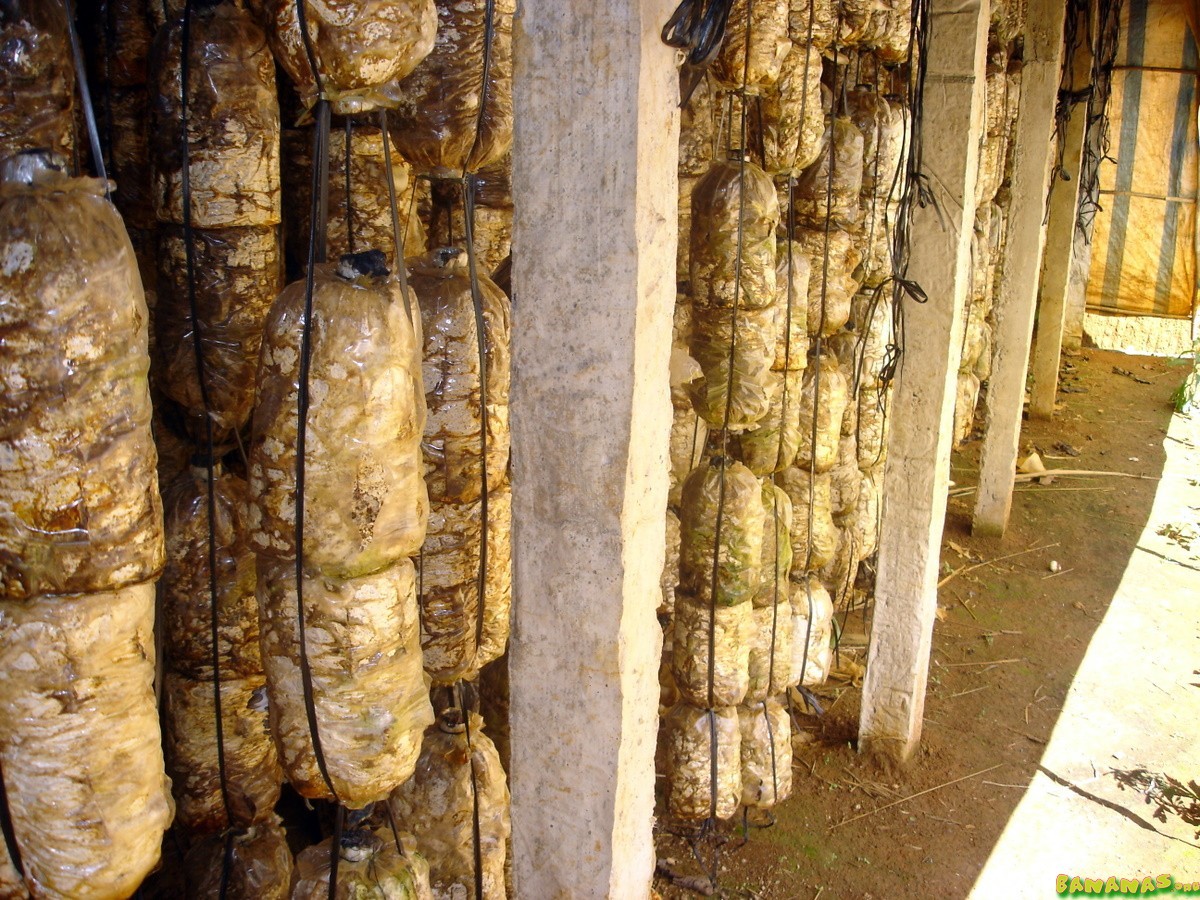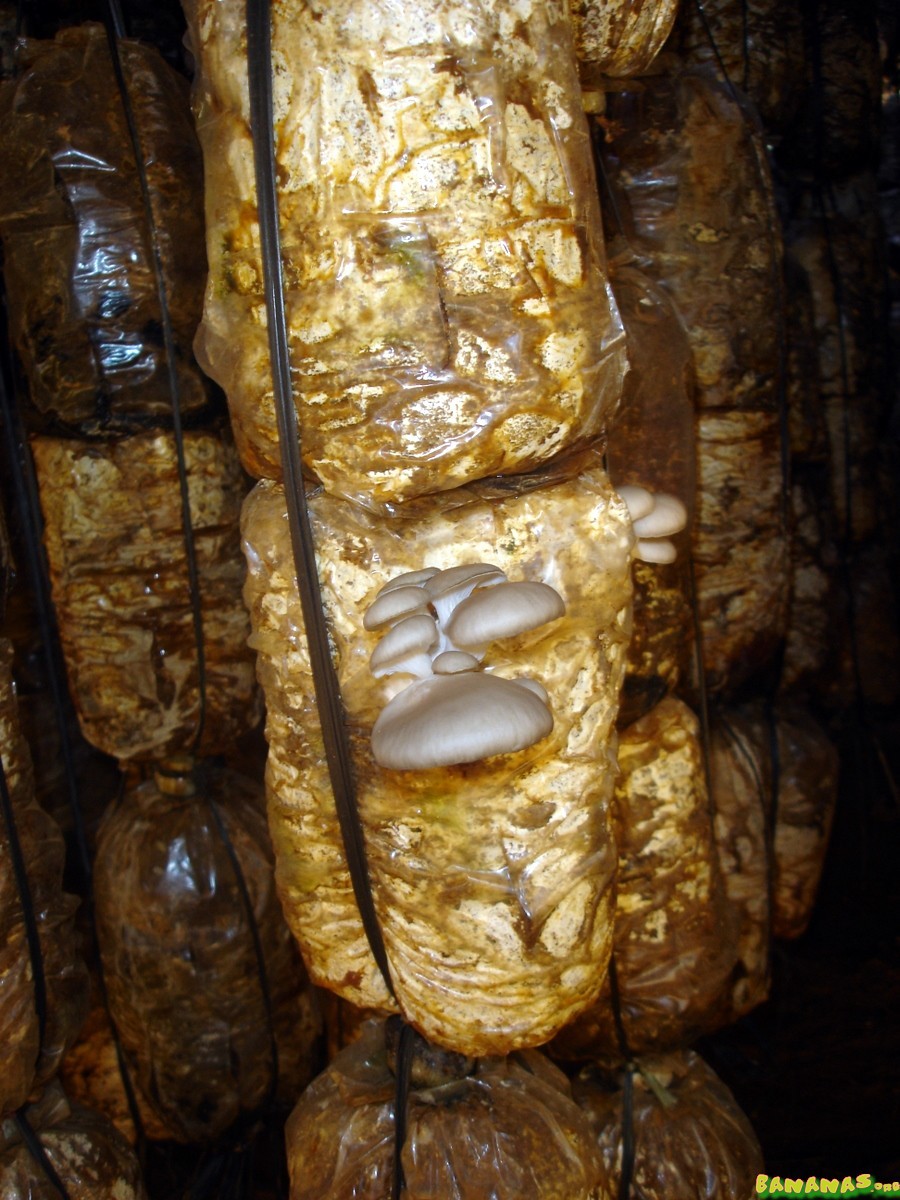Location: Penticton, BC, Okanagan Valley, Canada
Zone: Hardiness Zone 6
Name: Olaf
Join Date: Apr 2010
Posts: 1,705
Said "Thanks" 2,050 Times
Was
Thanked 2,012 Times in 876 Posts
|
 Sack Gardens for Space Efficiency
Sack Gardens for Space Efficiency
Introduction:
My wife is a member of Grandmothers for Africa. This is a charity organization, which supports the
Stephen Lewis Foundation with the purpose of helping grandmothers in Africa, who are raising their
grandchildren, who lost their parents to the AIDS epidemy, which raged there.
For non-Canadians: Stephen Lewis is a former UN Ambassador to Africa, who, once his term there was finished,
remained there to provide charitable work.
The below text is part of a monthly information bulletin sent out to members. Interesting to this forum
is the method of sack farming which can produce large yields in very limited space. My wife and I encountered
sack farming in a mushroom farm in Vietnam during one of our trips there and were impressed with the space
efficiency as compared with our local method of growing mushrooms on shelves. See Photos at the
bottom of this post. Apparently in Africa they have taken this technology a step further and
applied it to other crops as well.
Obviously the demand for light of most crops does not allow the density achieved in mushroom farms, but the
space efficiency is still unparalleled in any gardening/farming technology I have seen so far.
Quote from the bulletin:
"6. Focus on African Projects: Sack Gardening -- From Food Support to Food Security
Initially grannies were getting monthly food handouts as strategy to food ensure security. However PEFO realised
that this was not sustainable especially among grannies that were still strong to produce for their households.
A meeting between PEFO and grannies resulted in a decision that grannies should be supported with planting
seeds and agriculture extension services to produce their own food except for those too weak to work.
– Justine Ojambo, PEFO, Uganda.
Sack gardening is an agricultural technique where vegetables are planted in a large sack rather than in the ground.
Sack gardens are one example of a wide variety of nutritional support initiatives being undertaken by
grassroots organizations across Africa. Additional activities include kitchen gardens, livestock programs (i.e.
rabbits and pigs), community farming, etc.
Sack gardens are popular with grandmothers as there are numerous advantages to cultivating vegetables
in this way including:
• She can grow food even if she has limited or no access to land, or her plot is too small to support her family;
• A sack garden can be set up close to home eliminating the need to walk often long distances to her plot
or it can be set up communally so women can work together;
• She can plant a wider variety of vegetables that provide vital nutritional enhancement to her family’s
diet (even more critical for HIV-positive family members, and growing children);
• Provides income subsidy as fresh produce can be sold;
• It is much easier to water and protect her crops during seasons of drought which are becoming more frequent.
Visitors to PEFO (supported by the Stephen Lewis Foundation since 2005), cannot help but marvel at their incredibly
lush gardens and innovative growing techniques on display at their farm school:
We walked through PEFO’s massive organic gardens. They’ve been growing spinach, onions, chives and other
vegetables to help feed the community and generate some income. They’ve been helping grandmothers set up
their own kitchen gardens and have even come up with an ingenious way to grow vegetables in a large feed-bag.
PEFO makes their own organic pesticides (using hot chillies, among other things!) and creates their own
compost and fertilizer for the gardens.
– Gillian Mathurin, The Stephen Lewis Foundation
In addition to PEFO, the St. Francis Health Care Services in Uganda (an organization supported by the
Stephen Lewis Foundation since 2006) also works closely with grandmothers, providing training
in agricultural skills.
When the grandmothers were ready to put their training into action, they suggested that they acquire a
communal piece of land where they could work together to plant and tend their sack gardens. Rather than
spending long hours gardening alone at home – these grandmothers have turned work into a supportive group
activity.
To date they have successfully produced a crop of lettuce, french beans and two crops of mushrooms. They
share food among their households and sell the surplus for additional funds that are re-invested into their farm.
Reach Out Mbuya Uganda (supported by the Stephen Lewis Foundation since 2003) illustrates a number of
growing trends in household-based agricultural projects for grandmothers who now garden in vegetable gardens,
mushroom houses, raised-bed gardens, and sack gardens.
Mushrooms are growing in popularity as a crop for
sack gardening. They do well with minimal care and they require less space since the bags are suspended in rows
from the ceiling. Mushrooms contain properties that strengthen the immune system and as such are excellent for
HIV-positive patients. Additionally, Reach Out has developed some innovative programmes to compliment
their food security activities such as rain harvesting, shared tap water systems and are planning to branch
out into green housing."
End of quote from bulletin

This overall view of a section of a Vietnamese mushroom farm shows the density, which can be achieved.
The hanging sack chains can easily be pushed aside to provide access for harvest and maintenance.

The picture above does not show any of the sacks in “production”, but you can see here, how the crop
can grow through slits in the sides of the sacks. We see sometimes strawberries growing in similar
manner out of (costly) ceramic containers in our garden shops
__________________
The reason I joined this forum was to share experiences,
my own and those of others and to learn from them.
Last edited by Olafhenny : 10-31-2011 at 10:52 PM.
|